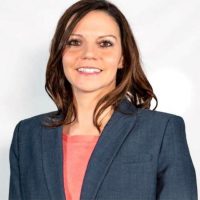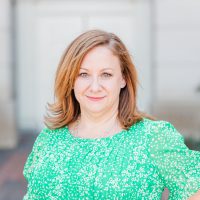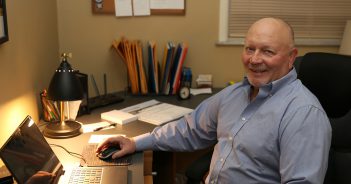Three candidates are facing off in the May 2 Republican primary for the North Central District seat on the Carmel City Council. The winner will face Democrat Courtney Culver in the November general election.
Incumbent Teresa Ayers, who joined the council in January after being appointed by a caucus; Leah York, founder and owner of Talbott Talent; and Chuck Ford, a former teacher and wrestling coach at Carmel High School, answered the following questions from Current:
Carmel is often criticized for its debt load. Do you believe Carmel has too much debt? Why or why not?
Ayers: The debt issue needs to be clear and transparent to the taxpayers/residents. I believe it has been confirmed that, yes, Carmel has too much debt. However, when debt is used wisely and managed properly the city can benefit. Carmel’s debt is approximately $1.5 billion. This means debt is $17,000 for every man, woman and child living in Carmel. With an impending recession, I think Carmel should focus on paying down our debt and improving our credit rating.

York: When Carmel’s debt load is viewed as part of the city’s overall financial health, I do not feel that the debt load is “too much.” Just like with a business or a household budget, when considering if taking on long-term debt is prudent, the ability to repay that debt must be a major factor. Carmel has been able to provide stability and growth by using borrowing as a tool, and the city has the revenue to be able to cover all of the debt service without raising taxes.
Ford: The current debt according to information the city provides the state is $1.5 billion. Local reports state that Carmel currently spends 20 percent of its budget just to pay down debt and interest on that debt. According to Craig Johnson, associate professor in Indiana’s School of Public & Environmental Affairs, the 5 to 10 percent range is a warning zone, and above 10 percent is very, very serious. It sounds like we have a debt problem.
How should the city balance redevelopment with maintaining the character of surrounding, well-established areas?
Ayers: Throughout my campaign I have walked in many of our beautiful well-established neighborhoods. The constant theme throughout this experience was that the residents love their neighborhood and the city of Carmel. However, there is concern regarding the constant increase in development and density. It is vital to maintain the greenspace we currently have and expand on it where we are able.

York: Overall, Carmel is doing a good job of using available land in an effective way. Where there are places that need higher density, we need to focus on building up and not out. Where there are places that single family homes are the best use, we need to support the development of high-quality homes and protect existing neighborhoods. We need to have places where small businesses can thrive and grow, and places where large corporations can attract quality workers who will live in the community.
Ford: The development of the AT&T lot exemplifies how developers encroach on a long established neighborhood. In spite of zoning ordinances requiring new development not to exceed 35 feet in height next to a neighborhood, developers used appointed bureaucrats, non-elected CRC and government employees, to approve a six-story apartment complex adjacent to the Johnson subdivision. I believe in thoughtful development that respects the rights of long established neighborhoods. Construction of thousands of apartment units is changing the culture of the area. These multi-story buildings caused the arts district and Midtown to lose its previous quaintness.
The city has devoted 1 percent of its general fund to supporting local arts. Is this an appropriate amount and funding source? Why or why not?
Ayers: Local art in our community is valuable. It is a beautiful way to show appreciation to those in our community. However, art is in the eye of the beholder. At 1 percent of our total budget, perhaps it is time to rethink the value versus the cost. I am proud of our city, most importantly, the citizens who live here because that is what truly makes Carmel the best place to live.

York: In Carmel, the arts organizations that receive funding from the city provide much needed services that otherwise would not be available. The arts also serve as a proven economic driver in Carmel. Because of the impact that it has on the culture of our community, I feel it is important for the city to continue providing that support.
Ford: I believe the city needs to re-evaluate its spending priorities. The city is committed to spending $4 million a year to support the Palladium and over $1 million for a light show on the Palladium. They have spent an additional $6 million for other issues to support the Palladium. This is money spent that might be better spent on streets, fire protection, police protection and senior citizens.
The city has had a couple of failed starts in implementing diversity training and initiatives. How do you think the city should handle diversity training?
Ayers: Having lived in Carmel almost my entire life and attended Carmel High School, I have personally witnessed our family and all other families (have) welcoming attitudes to all people without judgment. I have been knocking on many doors; we are a diverse community. We welcome one another regardless of race, religion or otherwise. I think we are all equal and we should include all individuals. God created us equal. Implementing a specific training only divides us. Again, our residents are what make our city.
York: Ensuring that Carmel’s employees have the education and awareness to understand the complex issues surrounding diversity in the community is something that should be a priority for the city. I support a solution that brings experts in to make sure that we always have the most up-to-date and effective diversity training in our city.
Ford: The city should follow state and federal laws regarding equal rights in this country. I don’t believe the city or the schools need to hire people to tell the public how they feel about other people. I was raised on the Golden Rule. That tells you how to treat others. Equity is not equality, there is a huge difference. Equity ignores the meritocracy that made this country the wealthiest most successful country in the world. Equity is a buzzword straight from the teachings of critical race theory. If the city wants to inform their employees about state and federal equal rights laws it should do just that.
What should be the city’s role in supporting its senior citizen residents and their needs?
Ayers: This must be a top priority. Our senior citizens have helped grow Carmel into what it is today. We must provide the amenities and care they need and deserve, (including) ease of access into city buildings, available/dependable transportation and an activity center(s) where they have a say in what will benefit them and their needs. I feel our seniors have done so much for me personally, growing up in Carmel, that we should pay that forward to them.
York: Beyond partnering with local organizations to ensure that residents have access to the services that they want and need, we must continue to plan for more housing options. Many residents who are looking to downsize and stay in Carmel find that the price points available won’t let them do so. Those who have invested their lives in our community should have options to ensure they can stay here as their needs change later in life.
Ford: Carmel spends zero money on senior citizens. PrimeLife, our senior center, is in a stressed financial situation, completely dependent on grants, donations and memberships. The city needs to re-evaluate its current spending and fully fund a state of the art center. Seniors are the fastest growing demographic and comprise one third of Carmel’s population. Their needs should be addressed. I have contacted state and federal officials seeking temporary grant assistance. Twice, I have met with a developer to explore his interest in building a senior center run by PrimeLife. I am working with the Clay Township board and one council member to find solutions. As a councilman, I will continue my quest to resolve this issue.
What is Carmel doing well? What is its area in need of most improvement?
Ayers: Carmel is a beautiful place to live and offers a great quality of life. We need to ensure that the brave men and women employees of our public safety departments always have the equipment and manpower to keep our city safe. I also think we should shift some of our focus from development to providing greenspace and maintaining infrastructure.
York: Carmel’s focus on providing places for people to come together has led to a community that values and supports interactions between residents. This is unique, and must continue to be a focus as the city grows. While I feel there have been some efforts to better inform residents about what Carmel’s government is doing and why, I feel that the city should always be looking for new ways to get information out in an easy-to-understand and transparent way.
Ford: There are many things that Carmel has done well. Our parks, roundabouts, Monon trail and the increased number of restaurants are all pluses for Carmel. I believe more thought and public discussion needs to take place regarding spending and rapid urbanization. History proves that the problems with rapid urbanization are always the same: congestion, noise pollution, air pollution, light pollution and crime. The addition of a state of the art senior center would be something the city could be proud of. It could serve as an example to the state and the nation of how seniors should be respected.




